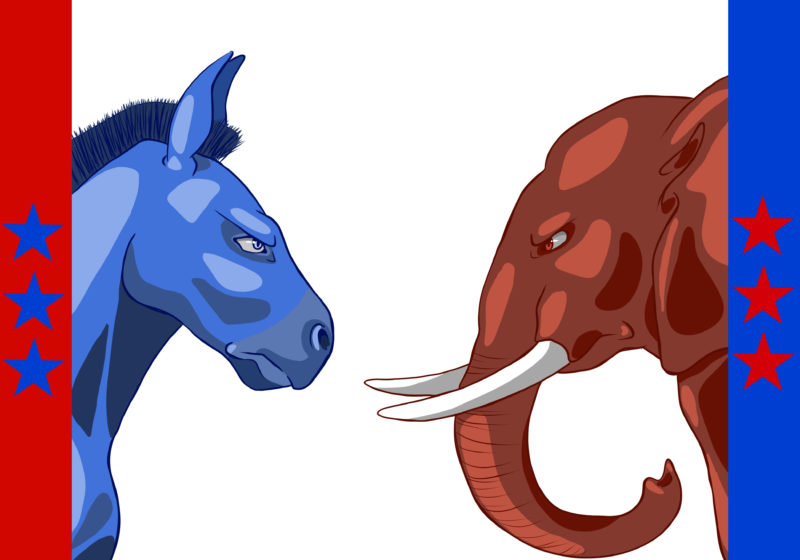Though people see the dual-party system in America as mere historical fact to be bemoaned, current voting rules and the American psyche guarantee its persistence. There are a number of reasons, both structurally and culturally, why the two-party system remains, and should remain, the defining feature of American politics.
In our current electoral system, a third party leads to two outcomes: the majority party is split and loses to the opposition across the aisle, or the majority party takes positions so they can co-opt this new party’s policy positions. It’s too easy for majority parties to crowd out incipient parties. Unless voting rules are diametrically changed, the two-party system will remain.
In order to change these rules, we’d need a majority in Congress to vote against the system that got them elected, which no member of Congress would do. But even more consequential is that Americans expect individual legislators to be favored by a voting majority in a given district.
Voting for individuals is ingrained in American voters. The idea of giving a seat in Congress to someone who was appointed by a party instead of directly by the American people is antithetical to the concept of voting in this country. The only changes in voting procedures in the United States have been to make voting more direct. Of course, one could argue that the party would still decide which candidates are on the ballot therefore the switch to a multiparty system is just a perceptual change of voting, but changing perception is also a monumental task.
Beyond the virtual impossibility of changing the underlying rules, the belief that the two-party system is unrepresentative is misinformed.
The current system allows voters to choose and veto specific candidates. While often people vote party line, the system of primary and general elections provides voters with two stages of control over who gains power. It also provides voters with a strong check on disfavored candidates — they can just crowd them out by voting for the opposite party, a power not present in multi-party systems.
Under optimal conditions (everyone voting in primaries and the general election), the outcomes would always be majority favored. In the primaries, there is an opportunity to evaluate the nuanced differences between individual party members. In the general election, you then choose between the most popular candidates from both parties.
The most important feature of a two-party system is that it limits the influence of extremists, while a multi-party system validates extremists by allowing them to create meaningful parties. Contemporary parties are extreme on both sides of the aisle, but the two-party system is still better equipped to dilute extreme policy proposals amidst more moderate ones. It does not allow full-fledged radicals to gain seats in government as a self-identifying unit. The two-party system dictates that any radical candidates or proposals must be accepted and endorsed by more moderate party leaders, who provide funding and endorsements.
There have been, and always will be, extreme eras and extreme members of both parties in Congress. But they have not — and will not — be able to establish themselves, under the constraints of a two-party system, as a unique, prophetic party with a solution to all the nation’s problems.
It is a fallacy to look at a system flexing and adapting to current political trends, and demand its complete upending — especially when the system isn’t being used to the fullest extent. Unless (or until) we see consistent political engagement from the American people, it would be unwise and imprudent to ask for anything different.






